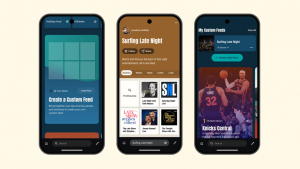Trulia, Zillow Head to Android, iPad and Beyond. The Geo-Location of Real Estate.
![]() By responding to users’ and professionals’ requests, and addressing the migration of users to mobile environments, real estate websites Trulia and Zillow released another series of apps for the iPad and Android devices. Trulia is now offering apps for iPhone, iPad and Android devices, whereas Zillow covers BlackBerry, iPad, iPhone, Android and WP devices. With the BlackBerry app, Zillow says will now cover over 90 percent of smartphone users as its services are used on mobile devices more than 6.5 million times each month.
By responding to users’ and professionals’ requests, and addressing the migration of users to mobile environments, real estate websites Trulia and Zillow released another series of apps for the iPad and Android devices. Trulia is now offering apps for iPhone, iPad and Android devices, whereas Zillow covers BlackBerry, iPad, iPhone, Android and WP devices. With the BlackBerry app, Zillow says will now cover over 90 percent of smartphone users as its services are used on mobile devices more than 6.5 million times each month.
The iPad apps are different from the iPhone apps, All Things Digital notes, in the sense that they were designed for the use of the larger screens to display a color-coded heat map that examines the differences in average listing price and sold price within a city or county. The Android app will allow users to add open houses to their calendars and scan QR codes.
Trulia was covered in the recent news following its partnership with real estate company RE/MAX. The two companies will interblend their data bases to enhance the users’ experience.
“Our new partnership with RE/MAX allows Trulia to provide comprehensive listing data to our highly engaged consumer audience and help these buyers and sellers connect in a meaningful way with RE/MAX agents,” Gerstenfeld said.
In the same fashion, last year, Zillow teamed up with Yahoo Real Estate and Apartments.com.
Geolocation is very powerful resource at the moment, but vulnerable at the same time. Sensitive issues such as privacy have always been, and will always be, a matter of concern. Services such as Foursquare, Google Places, Facebook Places and so on inform people in the friends lists about users’ whereabouts. The other day, an app named Creep,created a fuss over privacy in social media as this application aggregates user data from Twitter and EXIF tags from photos posted to Flickr and other photo-sharing sites, pointing afterwards the location on Google Maps. The same issue was encountered in another app, entitled Color, that allows users to access photos of anyone in proximity of 100 feet. Without privacy filters, social photo sharing services enhance the users’ vulnerability.
A message from John Furrier, co-founder of SiliconANGLE:
Your vote of support is important to us and it helps us keep the content FREE.
One click below supports our mission to provide free, deep, and relevant content.
Join our community on YouTube
Join the community that includes more than 15,000 #CubeAlumni experts, including Amazon.com CEO Andy Jassy, Dell Technologies founder and CEO Michael Dell, Intel CEO Pat Gelsinger, and many more luminaries and experts.
THANK YOU















